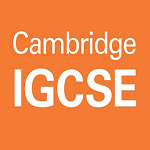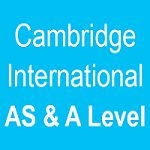
- +233-26 4444405
- +233-57 5858999
- info@mertonint.com
 The programme at the primary level is based on the Cambridge International Primary Programme(CIPP). Teaching in the Primary School is inspired by the 5 Cambridge learner attributes. These attributes require learners to be Confident, Responsible, Reflective, Innovative, and Engaged. Courses at the Primary level include English, Mathematics, Science, French, History, Geography, ICT, P.E., Art, Music and PSHE. At the Lower Primary (Classes 1 to 3) the children will have the daily English and Mathematics lessons. Pupils cover the full range of CIPP Curriculum topics over the year. In History and Geography, even though all the topics taught are not exclusively about Ghana, care is taken to make topics relevant to our African setting and teach them enough at that level about Ghanaian history and African history as well.
The programme at the primary level is based on the Cambridge International Primary Programme(CIPP). Teaching in the Primary School is inspired by the 5 Cambridge learner attributes. These attributes require learners to be Confident, Responsible, Reflective, Innovative, and Engaged. Courses at the Primary level include English, Mathematics, Science, French, History, Geography, ICT, P.E., Art, Music and PSHE. At the Lower Primary (Classes 1 to 3) the children will have the daily English and Mathematics lessons. Pupils cover the full range of CIPP Curriculum topics over the year. In History and Geography, even though all the topics taught are not exclusively about Ghana, care is taken to make topics relevant to our African setting and teach them enough at that level about Ghanaian history and African history as well.
Art, French, P. E. and Music are also other subjects on the timetable. These are taught by specialists. Physical Education is done once a week by a specialized P.E. teacher. At this level, it is to help develop the child’s speed and endurance, improve their coordination and to foster team spirit in them by means of athletics and ball games. Unless a pupil is medically unfit, it is compulsory.
The three-year educational programme in Upper Primary prepares pupils for entry into the secondary school. The content is comparable to that which is offered in the preparatory schools in Britain, and is purely based on the CIPP and also elements of the British National Curriculum as well as the Ghanaian Curriculum. Subjects taken in classes four, five and Six are: Mathematic, English, History, Geography, French, Music, Science, Art, P.E ,PSHE and ICT. Pupils are taught by their class teachers in some subjects except French, ICT, Art, Music and PE which are taught by specialists.
All subjects in Class 6 are taught by specialists. However, each class has a teacher who supervises class activities and is responsible for the general well being of the pupils entrusted in his or her care.
Subjects in Class 6 are English, Mathematics, Science, History, Geography, French, Art, Music, P.E., ICT and PSHE. Class 6 History provides the pupils an opportunity to study real life people and real events. The history syllabus focuses on Ghanaian history and themes and concepts in African and World History as well. Class 6 Geography is divided into Regional and Physical Geography. Pupils are introduced to the natural phenomena associated with the earth’s surface as well as the natural interaction of human activities and the environment. In Regional Geography, emphasis is laid on the geography of West Africa, especially Ghana.
In Primary Year 6, pupils sit the Cambridge Primary Checkpoint in English, Mathematics and Science. The Cambridge Primary Checkpoint is designed to assess learners at the end of Cambridge Primary. It gives valuable feedback on learners’ strengths and weaknesses before they progress to the next stage of education and provides schools with an external international benchmark for learner performance. Each learner receives a statement of achievement from Cambridge. However tests in Science, Social Studies, History, Geography and French are teacher designed.
 Forms 1 to 3 offer a pre-IGCSE programme in preparation for the IGCSE proper. The subjects include English, French, Literature, Geography, History, Mathematics, Biology, Chemistry, Physics, ICT, Physical Education and Art.
Forms 1 to 3 offer a pre-IGCSE programme in preparation for the IGCSE proper. The subjects include English, French, Literature, Geography, History, Mathematics, Biology, Chemistry, Physics, ICT, Physical Education and Art.
In Form 4 when students embark on the two-year IGCSE course. There are several options open to them but Merton offers the afore stated choices.
| Groups | IGCSE |
| Group 1 | English and French (First Language, Second Language, Foreign Language, etc.) |
| Group 2 | Humanities and Social Science (Geography, English Literature, History, Economics etc.) |
| Group 3 | Sciences (Biology Chemistry Physics, etc) |
| Group 4 | Mathematics (Mathematics, Additional Mathematics, etc) |
| Group 5 | Creative, Technical and Vocational (Accounting, Business Studies, ICT, Art and Design, etc) |
A typical student’s subject combination would be as follows:
Group 1: English & French
Group 2: Literature & History
Group 3: Biology & Chemistry
Group 4: Mathematics
Group 5: ICT & Business studies
.
The school aims for the prestigious ICE Certification which means that students would have to offer a minimum of seven (7) subjects from all the Subject-Groups, plus an additional language rather than a maximum of five-(5) subjects that leads to the award of an IGCSE certificate.
The competencies outlined by the CIE area clearly stated in their syllabi and the Departmental schemes and plans are derived from them. In Groups 3 and 4, candidates are expected to calculate, define and describe; investigate, judge and draw conclusions among other things. In Groups 1 and 2 the ability to select, organize and use information is particularly sought for as they are in Group 5.In addition to these core skills, the supplementary ones of analyses, syntheses and evaluation which ensure the much coveted grades of A*- C are what teaching will lead to.
In the run up to subject choices by students in the third term of Year 9, the IGCSE Secondary Head teacher and the Vice-Principal will guide students through the selection process through explanations and reference to student precedents. Emphases will be laid on future careers, our stated mission and students desire to explore other subjects.
 Students who have successfully completed the IGCSE programme can progress to the Sixth Form College at Merton where they are required to offer at least 3 subjects. At the Sixth Form College students study for 6 terms (2 years) before sitting the A- Level examinations. Currently the subjects on offer are Literature in English, Geography, Sociology, History, Economics, French, Mathematics, Biology, Chemistry, Physics, Art and Design and Applied ICT. Successful A Level applicants can gain entry to any university of choice, both in Ghana and overseas.(US, UK, Canada, etc).
Students who have successfully completed the IGCSE programme can progress to the Sixth Form College at Merton where they are required to offer at least 3 subjects. At the Sixth Form College students study for 6 terms (2 years) before sitting the A- Level examinations. Currently the subjects on offer are Literature in English, Geography, Sociology, History, Economics, French, Mathematics, Biology, Chemistry, Physics, Art and Design and Applied ICT. Successful A Level applicants can gain entry to any university of choice, both in Ghana and overseas.(US, UK, Canada, etc).
Click Here to download detailed High School Academic structure or please visit www.c.i.e.org.uk for further details on the IGCSE syllabi.
